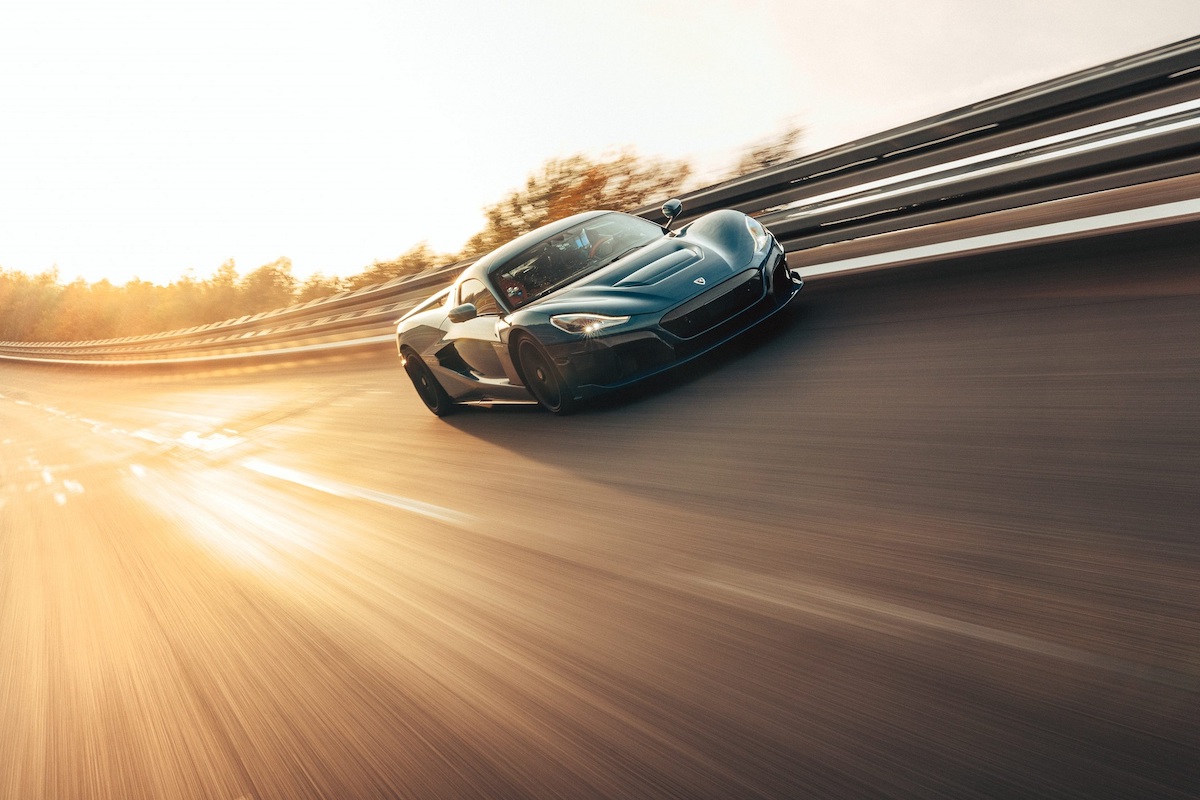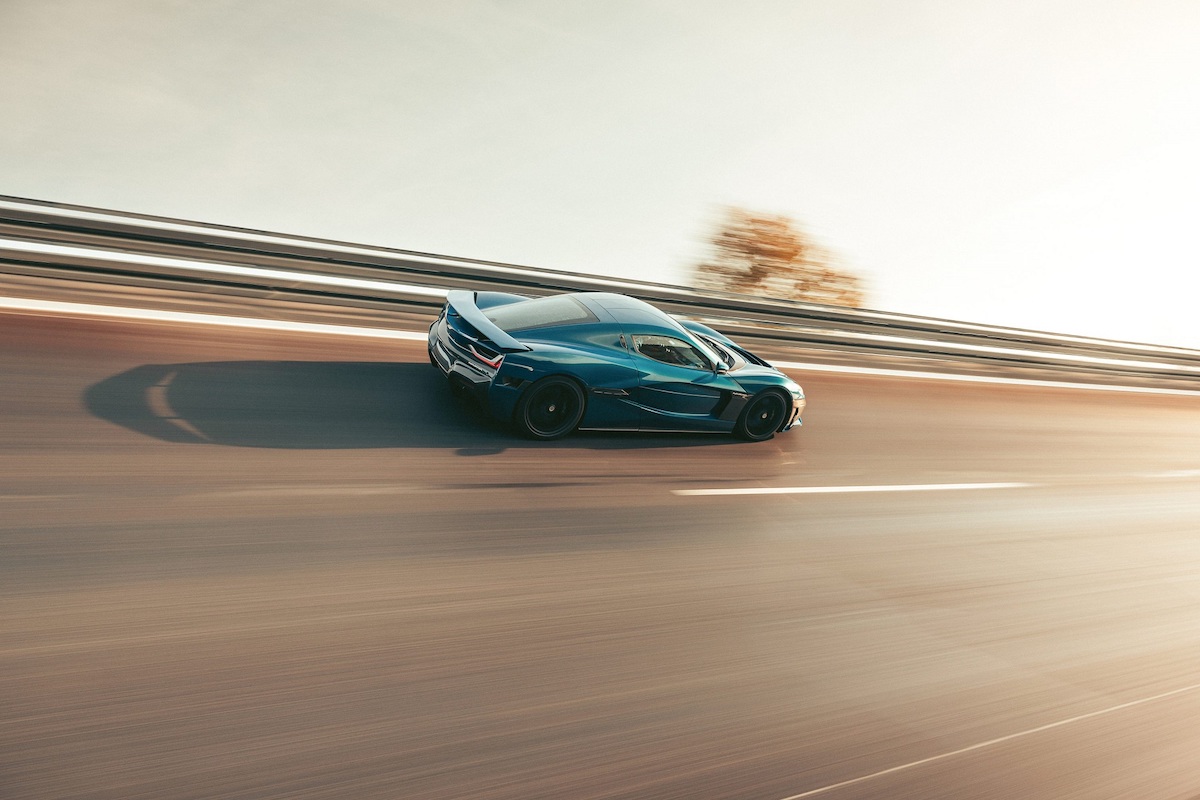Charging to the top: Rimac sets new electric car speed record with the Nevera


The first car to exceed 100km/h was the La Jamais Contente in April 1899, a Belgian electric vehicle with a torpedo-shaped body and batteries.
Compared to the electric cars of today, it is a relic. But that set humans on the path of chasing high and higher speeds.
The first production car to break the 400km/h barrier was the Bugatti Veyron EB 16.4, reaching 408.47km/h in April 2005.
Since then, every production car that exceeded 400km/h has been powered by an internal combustion engine. Every car until now, that is.
The Nevera, from Croatian manufacturer Rimac, has entered this prestigious club at 412km/h, setting a new speed record for the fastest electric production car.

The record-setting attempt took place at the Automotive Testing Papenburg Proving Grounds in Papenburg, Germany.
With an oval test track featuring two four kilometre long straights, this would allow the Nevera to get up to a suitable speed on the curved sections of the track before attempting to hit its top speed.
To qualify as a production car speed record, the Nevera had to perform its top speed run in two directions, with the average speed being the official record, and the car must also be as close to production specification as possible.
The Nevera was set to its top speed mode, giving it an aerodynamic profile that balanced drag and downforce, ensuring stability at high speed. It was also fitted with road legal Michelin Cup 2R tyres.

The driver for this record-setting drive was Rimac's Chief Test and Development Driver, Miro Zrncevic. The Nevera produces 1,914 horsepower and 2,360N-m of torque, and sends the power to the wheels via four electric motors, one for each wheel.
Rounding the banked portion of the track towards the straight at 250km/h, Rimac's Chief Test Driver accelerated the Nevera into the record books and onwards to a top speed of 412km/h.

Production of the Nevera is already underway, and limited to 150 cars.
If there is the question on whether owners are able to exceed 400km/h, they won't be able to, as Rimac has limited all customer cars to 352km/h.
If anything, owners can take comfort knowing that they can accelerate from zero to 100km/h in just two seconds, which is still one of the fastest times, if not the fastest, of any modern production car.
ALSO READ: 2022 BMW i7 review: Bavarian motors work